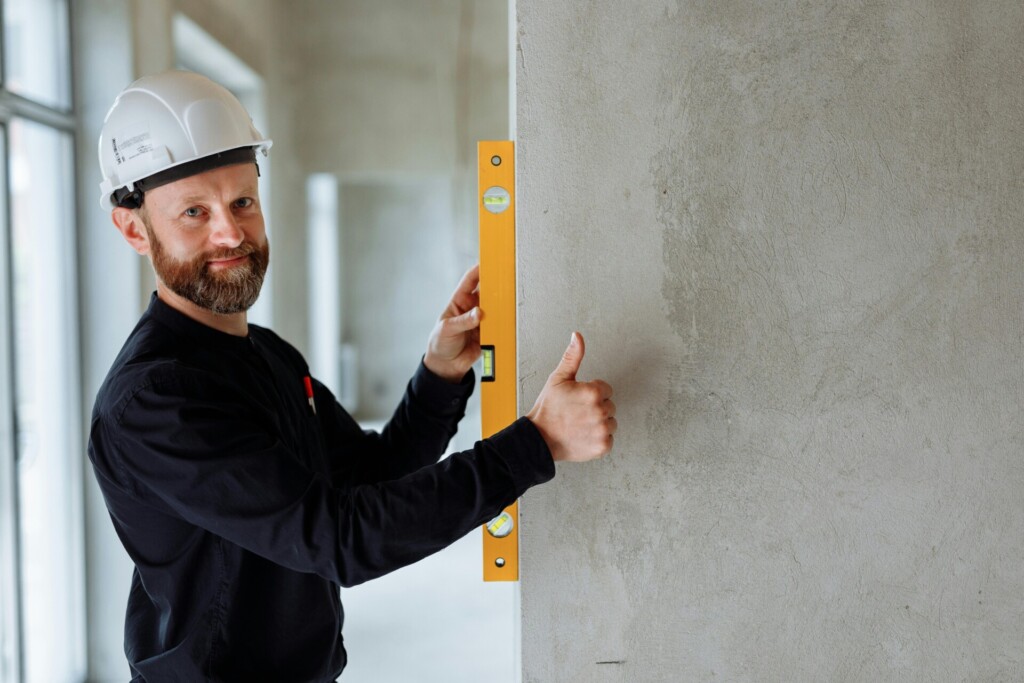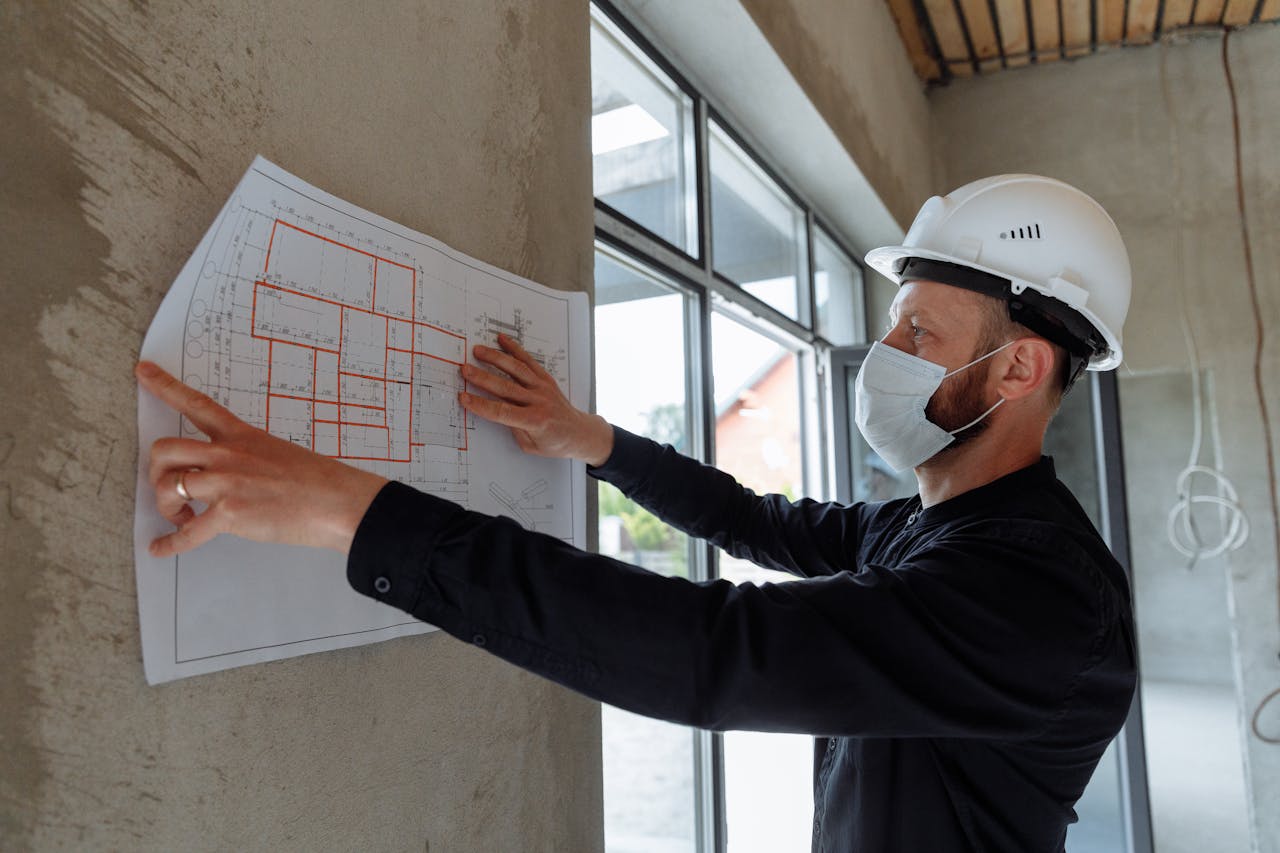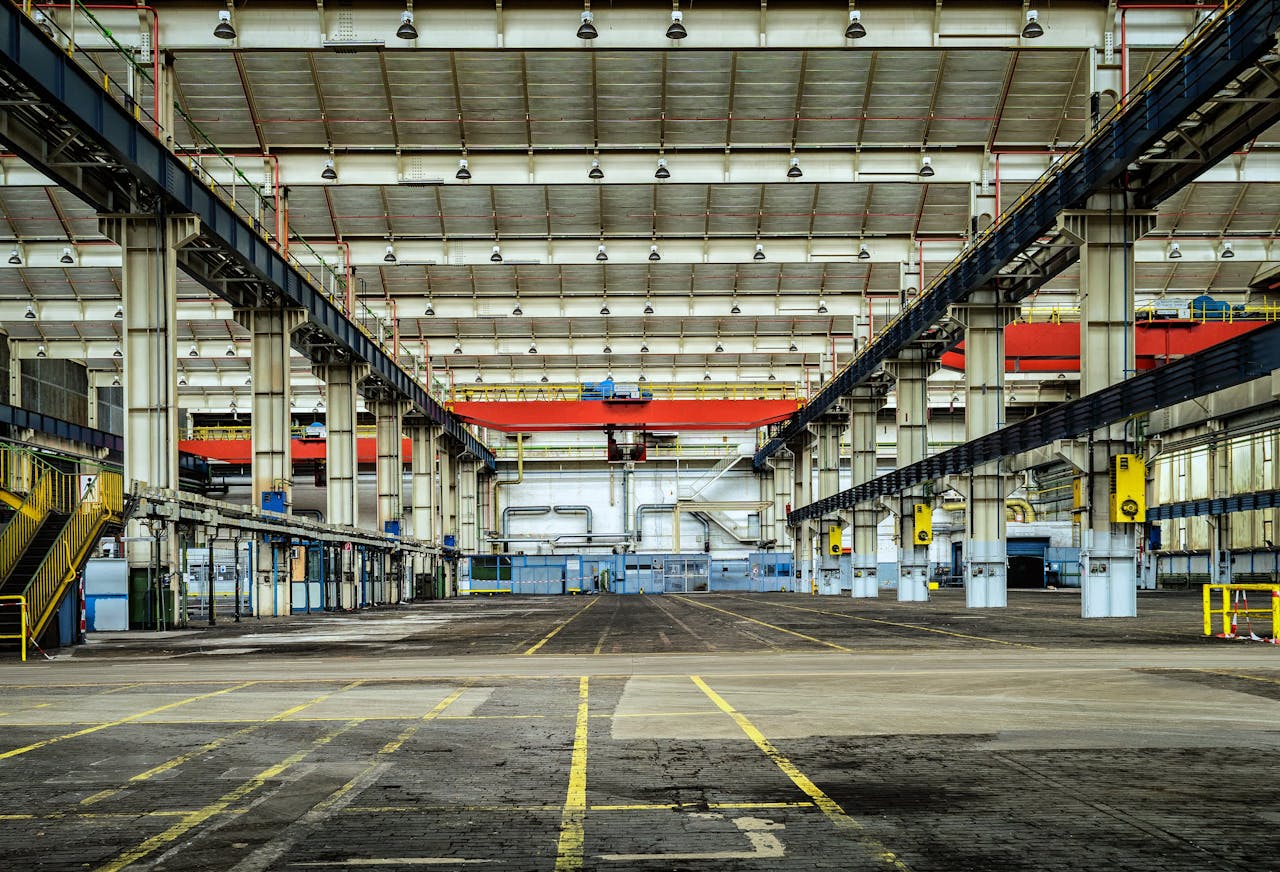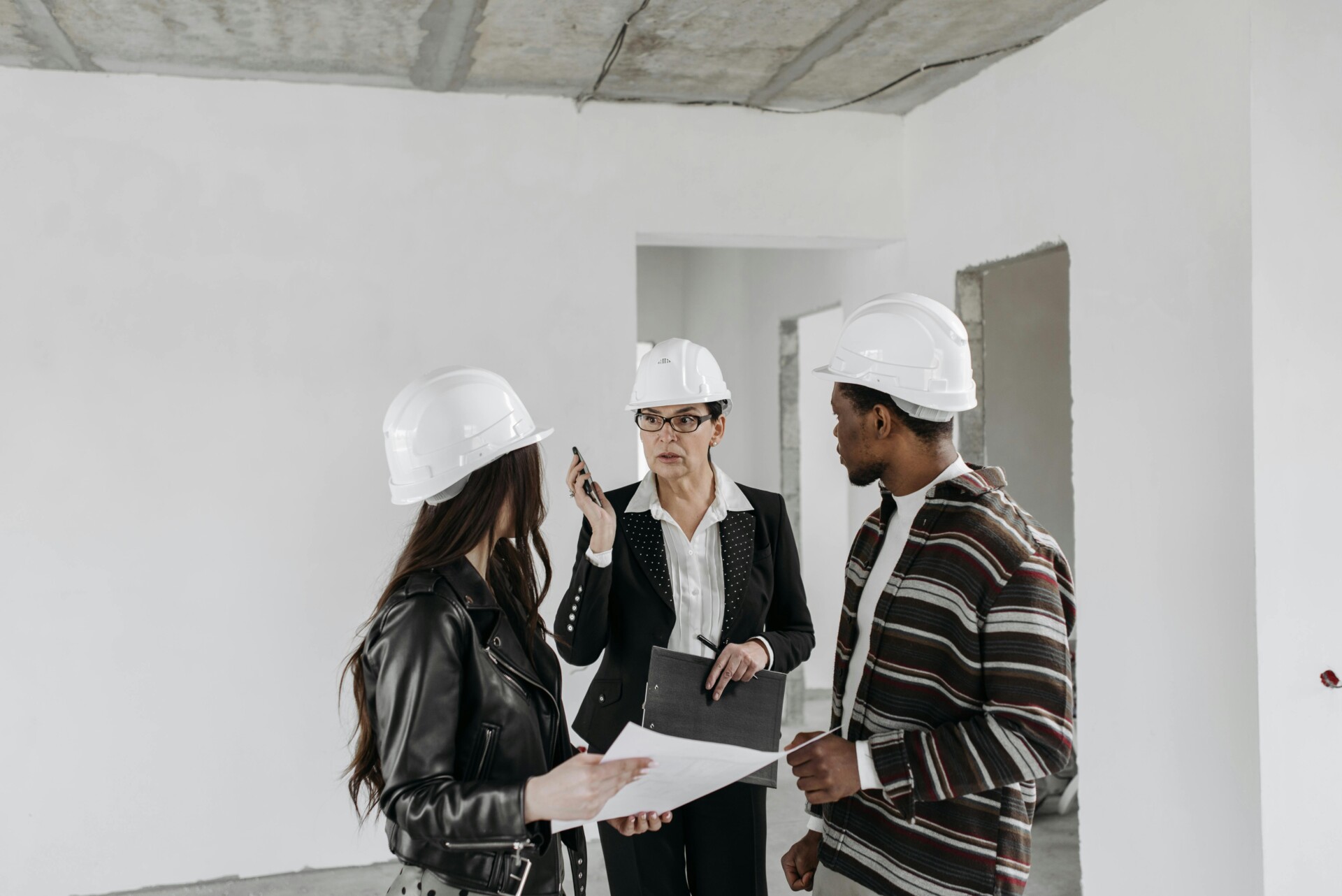Dallas sees over $5 billion in commercial construction projects annually. Picking the wrong contractor can result in costly delays, poor quality workmanship, and budget overruns.
The Dallas construction market presents unique challenges that require specialized knowledge and proven experience. This guide covers essential selection criteria, step-by-step evaluation processes, and Dallas-specific considerations to help your project stay on schedule and within budget.
Which Selection Criteria Matter Most In Dallas?

Selecting the right commercial construction company in Dallas requires evaluating specific criteria that directly impact project success. We focus on six essential factors when evaluating potential partners for commercial construction projects.
Local Experience And Market Knowledge
Local expertise defines successful Dallas construction projects. Contractors with deep Dallas experience understand the city’s unique building codes, zoning regulations, and climate considerations. They navigate expansive clay soil conditions that affect foundation design and manage construction schedules around intense summer heat.
We prioritize contractors who demonstrate familiarity with Dallas permitting processes and maintain relationships with local inspectors. This knowledge prevents delays and ensures compliance with municipal requirements. Contractors experienced in Dallas also understand regional material availability and local subcontractor networks.
Verified Credentials And Legal Compliance
Proper licensing and insurance protect your investment and ensure legal compliance. Every commercial contractor should hold a valid Texas contractor license through the Texas Department of Licensing and Regulation when required by their trade specialization.
Essential insurance coverage includes general liability insurance, workers’ compensation, and bonding. We verify these credentials directly with insurance carriers rather than accepting copies of certificates. Current bonding demonstrates financial stability and provides additional protection for your project.
Specialization And Portfolio Alignment
Project type expertise significantly impacts construction outcomes. We evaluate contractors based on their proven experience in similar project types, whether office buildings, retail spaces, or industrial facilities. Portfolio reviews reveal completion timelines, budget adherence, and quality standards.
Site visits to completed projects provide valuable insights into workmanship quality and long-term performance. We look for contractors who can demonstrate successful delivery of projects similar in scope, complexity, and timeline to our requirements.
Client Reputation And References
Client testimonials and ratings provide insight into contractor performance and reliability. We review ratings on Google and Better Business Bureau platforms, focusing on comments about project delivery, communication, and problem resolution.
Direct reference conversations reveal specific performance details that online reviews may not capture. We ask references about budget accuracy, schedule adherence, and the contractor’s ability to handle unexpected challenges during construction.
Transparent Pricing And Financial Practices
Clear, detailed proposals prevent budget surprises and project disputes. We require itemized cost breakdowns that specify materials, labor, and overhead components. Transparent pricing includes realistic contingency allowances and clearly defined change order procedures.
Contractors with transparent pricing practices provide detailed explanations for cost variations and maintain open communication about potential budget impacts throughout the project lifecycle.
Communication Standards And Project Management
Effective communication ensures project coordination and stakeholder alignment. We evaluate contractors based on their communication protocols, reporting frequency, and accessibility during project execution. Regular updates and proactive issue identification prevent small problems from becoming major delays.
Clear points of contact and structured communication schedules support project coordination between owners, architects, and construction teams. We look for contractors who establish communication protocols during project planning and maintain consistent contact throughout construction.
How Do You Run A Step‑By‑Step Contractor Selection Process?
Running a structured selection process protects your project from delays, cost overruns, and quality issues. We follow a methodical approach that addresses every critical decision point from initial planning through contract execution.
Define Project Scope And Goals
Start by documenting project type, size, budget, and schedule requirements. Commercial office buildings require different expertise than retail spaces or industrial facilities. Clear documentation prevents misunderstandings during bidding.
Special requirements like sustainability certifications or integrated technology systems need early identification. These factors influence contractor selection since not all firms handle LEED projects or complex MEP coordination. Budget ranges should include contingency allowances typically between 10-20% for commercial work.
Research And Build Your Shortlist
Target searches focus on contractors with proven local experience. Industry associations like the Dallas Builders Association provide qualified member directories. Referrals from architects, engineers, and other developers carry significant weight.
We recommend building a shortlist of 5-7 candidates before detailed evaluation. This provides adequate competition while keeping the process manageable. Local contractors understand Dallas building codes, permitting processes, and weather considerations that affect scheduling.
Verify Licenses And Insurance
Texas requires contractors to maintain state registration as businesses, though general contractor licensing varies by municipality. Verify credentials through the Texas Department of Licensing and Regulation online database. Many Dallas projects require additional local permits and certifications.
Request current certificates for general liability insurance, workers’ compensation, and bonding. Insurance coverage should match project size and complexity. Property owners can be held liable for accidents involving uninsured contractors, making verification essential.
Assess Portfolio Fit Through Site Visits
Review completed projects similar to yours in scope, size, and complexity. Strong contractors provide references and welcome site visits to showcase workmanship quality. Look for consistent finishes, attention to detail, and overall project execution.
Industry specialization matters significantly in commercial work. Office build-outs require different skills than warehouse construction or retail tenant improvements. Ask about recent projects, delivery methods used, and any performance challenges encountered.
Check References And Reviews
Contact previous clients about on-time delivery, budget accuracy, and communication effectiveness. Ask specific questions about change order management, problem-solving capabilities, and final project quality. Better Business Bureau ratings and online reviews provide additional perspective.
Strong contractors maintain long-term relationships with repeat clients. Multiple projects with the same developer or architect indicate proven performance and professional reliability.
Compare Multiple Detailed Bids
Request itemized cost breakdowns with realistic milestones and phased payment schedules. Detailed bids show labor, materials, equipment, and markup clearly. This transparency enables accurate comparisons between contractors.
Be cautious of unusually low bids that may indicate cut corners or inexperienced labor. Large upfront payment demands often signal cash flow problems. Payment schedules should align with project milestones and completed work.
Evaluate Communication And Culture
Strong contractors demonstrate active listening during initial meetings and provide transparent risk discussions. They address potential challenges proactively rather than avoiding difficult topics. Structured update procedures like weekly reports and progress photos indicate professional project management.
Cultural fit affects project success significantly. Contractors should align with your decision-making style, communication preferences, and quality expectations. Clear points of contact prevent confusion during construction phases.
Understand Contract Terms Thoroughly
Review detailed scope descriptions, payment terms, and change order processes before signing. Contracts should specify materials, workmanship standards, and completion schedules clearly. Warranty provisions protect against defects after project completion.
Major commercial projects often benefit from legal review, particularly regarding liability allocation and dispute resolution procedures. Ensure all verbal agreements appear in written form to prevent future disagreements.
Clarify Bidding Assumptions
Ask whether submitted numbers represent fixed bids or estimates with potential variations. Understand contingency allowances and what circumstances trigger additional costs. Fixed-price contracts provide budget certainty but may include higher margins to cover unforeseen issues.
Get all assumptions, exclusions, and allowances in writing. Verbal understandings frequently cause disputes during construction when memories differ about agreed terms.
What Delivery Methods And Management Capabilities Should You Assess?

Understanding project delivery methods shapes every aspect of construction performance. We evaluate contractors based on their delivery expertise because the chosen method directly impacts collaboration, risk allocation, and project speed.
Project Delivery Method Alignment
Construction Manager at Risk (CMAR) provides early contractor involvement with design teams while establishing guaranteed maximum pricing. The CMAR method allows us to benefit from construction expertise during preconstruction phases, often reducing conflicts between design and build teams. Design-Build streamlines the process by combining architectural services and construction under one contract, creating single-source accountability for both design and construction performance.
Integrated Project Delivery (IPD) represents the most collaborative approach, requiring shared risk and responsibility among owner, designer, and builder through multi-party agreements. According to research from the Construction Management Association of America, CMAR usage has grown to approximately 25% of the vertical construction market, with Design-Build capturing about 15%. Each method serves different collaboration needs and risk profiles.
Preconstruction Services Value
Strong preconstruction capabilities translate directly to project success through early budget alignment and constructability analysis. We look for contractors who provide value-added preconstruction services including comprehensive cost estimating, scheduling analysis, and design optimization. Real-time estimating during design development helps prevent costly redesigns and keeps projects within budget parameters.
Effective preconstruction teams conduct thorough site assessments, identify potential conflicts early, and develop procurement strategies that support project schedules. The best contractors use this phase to establish clear communication protocols and define project management systems before construction begins.
Quality And Systems Integration
Quality assurance and quality control (QA/QC) programs demonstrate a contractor’s commitment to delivering projects that meet specifications and performance standards. We assess QA/QC capabilities through documented processes, inspection protocols, and track records for delivering defect-free work. MEP coordination capabilities become critical on complex projects where mechanical, electrical, and plumbing systems require precise integration.
Commissioning support ensures building systems perform as designed at project turnover, reducing callbacks and operational issues. Contractors with strong commissioning capabilities provide comprehensive testing, documentation, and training that supports long-term building performance.
Safety And Schedule Management
Safety programs reflect overall project management competence and directly impact schedule reliability through reduced incidents and rework. We evaluate safety performance through EMR ratings, OSHA recordables, and documented safety protocols that demonstrate proactive risk management. Strong safety programs create productive work environments that support schedule adherence.
Realistic scheduling capabilities separate experienced contractors from those who overpromise and underdeliver. Effective schedule management includes weather planning, resource coordination, and contingency planning that accounts for project-specific risks and constraints.
Sustainability And Performance Solutions
Sustainability services extend beyond basic code compliance to include energy modeling, material selection guidance, and performance optimization strategies. Building performance solutions encompass everything from envelope design to mechanical system optimization that reduces long-term operating costs. Contractors with sustainability expertise help achieve certification goals while managing first-cost implications.
Performance-focused contractors provide post-occupancy support and warranty services that ensure building systems continue operating as designed throughout their lifecycle.
Construction Technology Capabilities
Virtual design and construction tools improve project coordination by enabling clash detection, schedule visualization, and real-time collaboration among project teams. We assess technology capabilities through BIM proficiency, project management software usage, and field technology adoption that supports quality control and progress reporting.
Construction technology improves project visibility through digital documentation, progress tracking, and stakeholder communication systems that keep projects on schedule and within budget parameters.
What Dallas‑Specific Risks, Timelines, Costs, And Mistakes Should You Plan For?
Local Risks That Impact Every Project
Expansive clay soils dominate the Dallas landscape, creating foundation challenges that demand specialized knowledge. These soils expand when wet and contract during dry periods, causing foundation movement that can crack slabs and damage structures. We encounter this reality on nearly every project and design foundation systems to accommodate this ground instability.
Weather presents another layer of complexity. Intense summer heat exceeding 100 degrees forces scheduling adjustments to protect workers and materials. Periodic rainstorms can shut down excavation and concrete work, pushing schedules back by days or weeks. We plan for these delays by building buffer time into our project calendars.
Local permitting processes vary across Dallas municipalities, each with unique requirements. The Dallas Green Building Program adds sustainability reviews for qualifying projects. Understanding these regulatory pathways prevents costly surprises during plan review and approval phases.
Realistic Project Timelines
Small retail spaces typically require 6 to 12 months from groundbreaking to occupancy. This includes permitting, construction, and final inspections. The timeline depends heavily on tenant improvement complexity and utility connections.
Large office buildings demand 1 to 2 years of total development time. Permitting alone can consume 3 to 6 months, especially for complex projects requiring zoning variances or environmental reviews. Weather-related delays add another 2 to 4 weeks annually for outdoor work stoppages.
We factor Dallas-specific delays into every schedule. Summer heat waves can pause concrete pours during peak afternoon hours. Spring storms halt foundation work and delay material deliveries. These patterns are predictable, making proactive scheduling essential.
Construction Cost Realities
Office construction in Dallas commonly ranges from $150 to $400 per square foot, reflecting finish quality and building complexity. Basic shell construction starts at the lower end, while high-end finishes with advanced technology systems reach the upper range.
Warehouse and industrial facilities typically cost $80 to $200 per square foot. Simple tilt-wall construction with basic utilities falls toward the lower end. Specialized facilities requiring heavy electrical loads, specialized HVAC, or process equipment approach the higher range.
These costs fluctuate based on material availability and labor demand. We validate all estimates with multiple detailed bids from qualified subcontractors. Single-source pricing often misses market reality and creates budget shortfalls during construction.
Critical Mistakes To Avoid
Choosing contractors based solely on price leads to quality compromises and change order disputes. Low bidders often cut corners on materials, labor, or project management. We see this result in delays, rework, and cost overruns that exceed initial savings.
Skipping reference checks eliminates crucial insights into contractor performance. Past clients reveal patterns in schedule adherence, budget accuracy, and communication quality. These conversations uncover potential red flags before contracts are signed.
Ignoring local expertise creates unnecessary risks. Contractors unfamiliar with Dallas soils, weather patterns, and permitting processes struggle with unexpected challenges. We prioritize partners with documented Dallas experience and established relationships with local inspectors.
Rushing contractor selection without thorough evaluation compounds every other risk. Proper due diligence takes time but prevents far costlier problems during construction. We recommend allowing 4 to 6 weeks for comprehensive contractor evaluation.
Practical Verification Steps
Request site visits to recently completed projects similar to yours. Walk through buildings with the contractor to observe workmanship quality and attention to detail. Ask pointed questions about challenges encountered and solutions implemented.
Confirm accounting and reporting procedures before signing contracts. Establish who provides weekly cost updates, change order documentation, and schedule progress reports. Clear communication protocols prevent disputes and maintain project transparency.
Verify insurance certificates and bonding capacity through direct contact with carriers. Ensure coverage amounts match project requirements and policy dates extend through project completion. This verification protects against contractor financial instability.
Conclusion And Next Steps

Selecting the right Dallas commercial contractor requires a systematic approach that balances multiple critical factors. Local expertise, verified credentials, transparent pricing, and strong communication form the foundation of a successful contractor relationship. The delivery method you choose should align with your project’s complexity, timeline, and risk tolerance.
Start by defining your project scope clearly, then build a targeted shortlist of contractors with proven experience in your industry and project type. Verify their Texas Department of Licensing and Regulation credentials, request insurance certificates, and confirm their bonding status. Compare itemized bids that include realistic schedules and phased payment structures, while carefully reviewing contract terms for change orders and warranty provisions. Account for Dallas-specific challenges like expansive clay soils, weather-related delays, and local permitting processes to protect both your schedule and budget.
Ready to start your Dallas commercial construction project? Contact EB3 Construction to discuss how our local expertise and proven delivery methods can keep your project on track and within budget.




